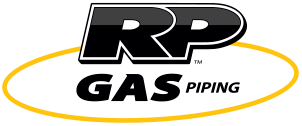Do you have cathodic protection for your underground propane tank?
Underground propane tanks are designed to be buried completely in the ground, making them attractive options for property owners. However, they are also prone to corrosion when exposed to soil, leading to potentially disastrous gas leaks.
Cathodic protection protects your underground propane tank from corrosion, but it needs regular testing to ensure that it’s working properly.
In Arizona, annual testing is required by the Arizona Corporation Commission (AAC). If you are an AZ property owner, our licensed professionals can do this for you, as well as help you with other gas line inspection services.
Read on to learn about the importance of cathodic protection and regular testing.
Causes of Corrosion
Underground propane tanks or any other tank made of metal will corrode when resting flush against the soil.
This is because of chemical reactions that occur because of voltage differences between steel surfaces and various soil substances.
Corrosion can happen in areas where there are high concentrations of certain substances like the following in the soil:
- Rocks
- Salts
- Fertilizer
- Moisture
- Oxygen
When localized corrosion occurs in one small area, this is sometimes referred to as a “pitting attack.”
There can also be generalized rust which leads to overall corrosion.
About Cathodic Protection
Corrosion is prevented by the use of specialized external coatings as well as cathodic protection.
Both need to be used because the coating, while effective, is probably still only going to offer 99% protection. Small defects and damage will naturally occur over time, which can lead to leaks.
Cathodic protection is the most common way to protect your underground propane tank or metallic gas piping below grade from corrosion or rust.
Cathodic protection works by stopping the current coming from external sources and making the tank cathode. This helps to prevent corrosion at those potential defect points.
There are two types of cathodic protection: sacrificial and impressed current. For underground propane tanks and other systems which only conduct small amounts of current, we use sacrificial cathodic protection. (Impressed current is for larger systems like major pipelines.)
Sacrificial cathodic protection involves using another type of metal to create a certain type of connection. The second metal (often magnesium) is used as an anode.
The technique controls the corrosion of a metal surface by making the metal in the ground the cathode by installing an anode next to it.
When the two metals are connected there is a difference in current flow which prevents corrosion.
Then the protected metal to a more easily corroded “sacrificial metal” to act as the anode. The sacrificial metal then corrodes instead of the protected metal.
The level of current can change though as both the anode and cathode shift, or move over time. The amount of moisture in the soil can also affect the current and therefore the rate of corrosion.
When is cathodic protection required?
Cathodic protection is required will all underground metal tanks, since they are all prone to corrosion. There are a few exceptions to this rule, but for the most part, cathodic protection is a requirement.
This is especially the case if it contains a regulated substance such as natural gas because leaks must be prevented to avoid contamination of groundwater and soil.
Anyone who has cathodic protection on their property must follow all industry and government regulations regarding the initial install as well as testing.
What is cathodic protection testing?
Regular cathodic protection testing is required to check the magnesium anodes since they too are prone to movement, corrosion, and general damage.
The tank must be fully isolated from all metallic piping systems for cathodic protection to be effective.
If the testing fails, repairs may include the replacement of anodes, but this isn’t always the case; we can help to determine the next steps if your testing fails.
Professional gas piping companies can help you with this if you have an underground propane tank or other types of metal tanks.
Make Sure Your Underground Propane Tank is Safe
Cathodic protection testing and anode replacements are a requirement for any underground propane tanks installed on your property.
An RP Gas Piping certified professional will help with this!
If you have questions about natural gas on your AZ property, we’re here to help. We offer a range of natural gas piping services, including installation, maintenance, and more.
Just click here to request an inspection, or call 602.759.8340 with your questions.


